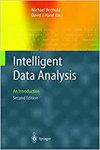基于多特征融合和条件增强的层叠解码联合学习框架
IF 0.8
4区 计算机科学
Q4 COMPUTER SCIENCE, ARTIFICIAL INTELLIGENCE
引用次数: 0
摘要
事件提取是一项重要的自然语言处理任务。随着时间的推移,已经开发了许多强大而有效的事件提取任务模型。然而,对于复杂重叠事件提取的研究还很有限。为此,我们提出了一种新的串级解码模型:基于多特征融合和条件增强的串级解码联合学习框架。1)在该模型中,我们引入了一种多特征融合的串级解码机制,以更好地捕捉解码层之间的交互作用。2)此外,我们引入了一种增强的条件层规范化(ECLN)机制来增强子任务之间的交互。同时,使用级联解码模型有效地解决了事件重叠的问题。该模型依次执行类型检测、触发词提取和参数提取三个子任务。所有三个子任务在一个框架中一起学习,并且使用了一种新的条件规范化机制来捕获这些子任务之间的依赖关系。实验使用重叠事件基准、FewFC数据集进行。实验评估表明,与原有的重叠事件提取模型相比,我们的模型在重叠事件提取任务上获得了更高的F1分。本文章由计算机程序翻译,如有差异,请以英文原文为准。
CMCEE: A joint learning framework for cascade decoding with multi-feature fusion and conditional enhancement for overlapping event extraction
Event extraction (EE) is an important natural language processing task. With the passage of time, many powerful and effective models for event extraction tasks have been developed. However, there has been limited research on complex overlapping event extraction. Therefore, we propose a new cascade decoding model: A Joint Learning Framework for Cascade Decoding with Multi-Feature Fusion and Conditional Enhancement for Overlapping Event Extraction. 1) In this model, we introduce a cascade decoding mechanism with multi-feature fusion to better capture the interaction between decoding layers. 2) Additionally, we introduce an enhanced conditional layer normalization (ECLN) mechanism to enhance the interaction between subtasks. Simultaneously, the use of a cascade decoding model effectively addresses the problem of overlapping events. The model successively performs three subtasks, type detection, trigger word extraction and argument extraction. All three subtasks learned together in a framework, and a new conditional normalization mechanism is used to capture dependencies among these subtasks. The experiments are conducted using the overlapping event benchmark, FewFC dataset. The experimental evaluation demonstrates that our model achieves a higher F1 score on the overlapping event extraction task compared to the original overlapping event extraction model.
求助全文
通过发布文献求助,成功后即可免费获取论文全文。
去求助
来源期刊

Intelligent Data Analysis
工程技术-计算机:人工智能
CiteScore
2.20
自引率
5.90%
发文量
85
审稿时长
3.3 months
期刊介绍:
Intelligent Data Analysis provides a forum for the examination of issues related to the research and applications of Artificial Intelligence techniques in data analysis across a variety of disciplines. These techniques include (but are not limited to): all areas of data visualization, data pre-processing (fusion, editing, transformation, filtering, sampling), data engineering, database mining techniques, tools and applications, use of domain knowledge in data analysis, big data applications, evolutionary algorithms, machine learning, neural nets, fuzzy logic, statistical pattern recognition, knowledge filtering, and post-processing. In particular, papers are preferred that discuss development of new AI related data analysis architectures, methodologies, and techniques and their applications to various domains.
 求助内容:
求助内容: 应助结果提醒方式:
应助结果提醒方式:


